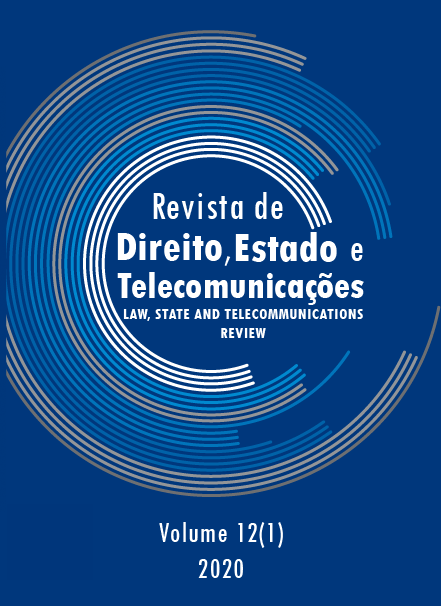Rethinking Must-Carry and Retransmission Consent Regulation in the Digital Era
DOI:
https://doi.org/10.26512/lstr.v12i1.24914Palabras clave:
must-carry, must-offer, broadcasting, pay TV, competitionResumen
The emergence of new technological platforms to access online services and content have transformed the media landscape dramatically. They require policymakers to reexamine the decades-old regulations traditionally addressed to broadcasters and telecommunications providers. Must-carry, retransmission consent, and “carry one, carry all” rules in particular require reconsideration, if not reform.
Must-carry regulation mandates cable and satellite pay TV providers to retransmit free-to-air broadcast programming. Such regulations have been adopted around the world, including the United States, Mexico, and France, the subjects of this article. Policymakers in these three countries have offered a variety of justifications for such rules, including the promotion of competition, local news and content, viewers´ rights, and content diversity.
Recent data and case law, however, strongly suggest that emergent platforms to access online services and content undermine the standing justifications for must-carry, retransmission, and “carry one, carry all” rules.
This Article argues that policymakers should consider other regulatory mechanisms to achieve the original reasons for such rules. The dramatic increase in the variety of devices (e.g., TV, tablet, mobile phones, smart TVs), service and content distributors (e.g., free-to-air TV, cable TV, internet), and service providers (e.g., broadcasters and “over-the-top” internet providers) strongly suggests that policymakers must reconsider the current approach. But any amendment to current regulation will depend on internet penetration and access to new video distribution platforms in a given geographic area. That is, without internet access, free-to-air TV might continue to be an important platform for service and content distribution.
Referencias
ALI, C. Media Localism. Champaign: University of Illinois Press, 2017.
ANALYSIS MASON. Etude portant sur les conditions de réussite de la télévision locale en France sur la base d’une comparaison internationale [Study on the conditions of the success of local television in France based on an international comparison], October 2010.
BEARD, T. R.; FORD, G. S.; SPIWAK, L. J., STERN, M. An Economic Framework for Retransmission Consent. Phoenix Center Policy Paper No. 47, 2013.
BENJAMIN, S. M.; SHELANSKI, H. A.; SPETA, J. B.; WEISER, P. J. Telecommunications Law and Policy. 3ªed., Durham: Carolina Academic Press, 2012.
CONSEIL CONSTITUTIONNEL (FRANCE). Décision nº 2015-529 QPC, March 23, 2016.
COUR D´APPEL (FRANCE). Paris, pole 5 ”“ ch.1, February. 2, 2016.
DESJARDINS, D. Discoverability: Toward a Common Frame of Reference ”“ Part 1. Canada Media Fund, 2016.
DESJARDINS, D. AND KORNFELD, L., Discoverability: Toward a Common Frame of Reference ”“ Part 2: The Audience Journey. Canada Media Fund, 2016.
EIJK, N. V.; SLOOT, B. V. Must-carry Regulation: a Must or a Burden? Amsterdam Law School Research Paper, No. 2013-02, January 15, 2013.
ESKENS, S. J. Dutch Telecom Company Granted Exemption from Must-Carry Rules for New App. IRIS Legal Observations of the European Audiovisual Observatory, 2016, available at http://merlin.obs.coe.int/iris/2016/1/article26.en.html.
ESKENS, S. J. Dutch Telecom Company Granted Exemption from Must-Carry Rules for New App. IRIS Legal Observations of the European Audiovisual Observatory, 2016, available at http://merlin.obs.coe.int/iris/2016/1/article26.en.html.
FOURTH FEDERAL CIRCUIT (USA). Satellite Broadcasting and Communications Association v. FCC, 275 F.3d 337 (4th Cir. 2001).
HARVAD LAW REVIEW. Tilling the Vast Wasteland: the Case for Reviving Localism in Public Interest Obligations for Cable Television, v. 126, pp. 1034-1055, 2013, available at https://harvardlawreview.org/wp-content/uploads/pdfs/vol126_public_interest_obligations.pdf.
HAZLETT, T. W. Digitizing “Must-Carry” under Turner Broadcasting v. FCC (1997), The University of Chicago Press Journals, v. 8, pp. 141-207, 2000, available at https://www.journals.uchicago.edu/doi/pdfplus/10.1086/scer.8.1147074.
Descargas
Publicado
Número
Sección
Licencia
Al enviar este documento a la Revista de Derecho, Estado y Telecomunicaciones,
declaro que estoy aceptando los términos de Creative Commons Attribution 4.0 International (CC BY 4.0)


